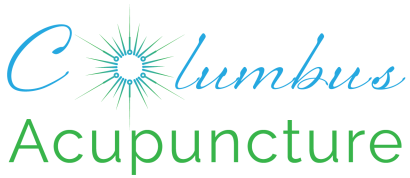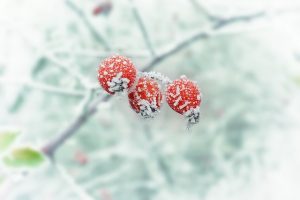
2520 California St, Ste G
Columbus, IN 47201(812) 374-4518
- Monday9am-4pmTuesday9am-5pmWednesdayclosedThursday9am-5pmFriday9am-5pmSatclosedSunclosed
-
Latest Articles:
- • Add These 10 Immune-Boosting Foods to Your Fall Diet •
- • Keep Your Skin Healthy and Glowing with these Fall Skincare Tips •
- • Beat End of Year Burnout with these Fall Self-Care Rituals •
- Sign up to receive news and updates and get my free report:“The Top 10 Reasons to Try Acupuncture”

Uncategorized
Acupuncture For Neck Disorders
 More and more current research is being conducted on the multitude of uses acupuncture has. For all of us in the Traditional Chinese Medicine community we already know that acupuncture is extremely beneficial to a variety of different medicinal problems. But, acupuncture and TCM are still in the early stages of being understood by he scientific community. In this 2016 study published by The Cochrane Review, researchers began to look at the link that takes places between acupuncture and the treatment of neck pain and disorders.
More and more current research is being conducted on the multitude of uses acupuncture has. For all of us in the Traditional Chinese Medicine community we already know that acupuncture is extremely beneficial to a variety of different medicinal problems. But, acupuncture and TCM are still in the early stages of being understood by he scientific community. In this 2016 study published by The Cochrane Review, researchers began to look at the link that takes places between acupuncture and the treatment of neck pain and disorders.
The study had an ambitious overall goal in determining what effects acupuncture has on the function, disability, and patient satisfaction of those with neck pain. By reviewing 27 different trials the researchers examined patients ranging from acute to chronic neck pain, and they compared studies receiving actual acupuncture to those receiving sham acupuncture.
Although the study found some limited results due to the variability of individuals studied, a few important conclusions were able to be drawn from the evidence.
For those who received actual acupuncture as opposed to sham acupuncture it was noted that they experienced both more effective long and short-term pain relief. In addition those who experienced actual acupuncture received noticeably better pain relief than those who did nothing at all.
What Should I Eat? Winter Food Suggestions
 Acupuncture views things differently than other medical systems. In TCM, there are guidelines that are considered very logical when it comes to the seasons. These guidelines lay out what foods and activities are best for each season of the year. Chinese medicine teaches us to live in harmony with the seasons. In TCM, there are actually five seasons – summer, late summer, fall, winter and spring. Every season has many associations which help guide people to create a more balanced life. When TCM was being developed, people lived in harmony with nature and they lived healthy, balanced lives. In modern society, we have gotten away from our connection with nature and we have many more distractions that have ultimately led us to become unbalanced and unhealthy.
Acupuncture views things differently than other medical systems. In TCM, there are guidelines that are considered very logical when it comes to the seasons. These guidelines lay out what foods and activities are best for each season of the year. Chinese medicine teaches us to live in harmony with the seasons. In TCM, there are actually five seasons – summer, late summer, fall, winter and spring. Every season has many associations which help guide people to create a more balanced life. When TCM was being developed, people lived in harmony with nature and they lived healthy, balanced lives. In modern society, we have gotten away from our connection with nature and we have many more distractions that have ultimately led us to become unbalanced and unhealthy.
Winter represents the most yin aspect of Chinese medicine. The properties associated with yin include darkness, cold, slow movement and inward energy. Winter is associated with the kidneys in TCM. The kidneys hold the body’s fundamental energy or Qi. By balancing ourselves with the corresponding seasons, we can prevent disease and stay healthy. So for the season of winter, we should take note of what happens in nature and do the same. To keep the kidneys strong, we must rest. This is why many animals hibernate during the winter. It is also a time to reflect inward and perform activities such as meditation, tai chi and qigong. These are the kinds of practices that help us connect with our inner selves and also support kidney energy.
When it comes to foods most beneficial for the body during the winter months, there are many to choose from. These should also be ones that naturally grow during this season. Items such as squash, potatoes, pumpkin, sweet potato, cinnamon, nutmeg, cardamom, beets, greens, carrots, mushrooms, apples, pears and cabbage. During the winter months, cold foods like salads and raw foods should be avoided as they will deplete the immune system. Instead, our bodies need warming foods like soups made with hearty vegetables. Bone broth is also very beneficial and becoming more mainstream. There are also foods that specifically target and nourish the kidneys. These include kidney beans, beef, goose, duck, black beans, lamb, chicken, dark leafy greens, garlic, ginger, walnuts, watercress and turnips. Sea salt is also helpful. Salty is the taste associated with the kidneys. But as with anything, moderation is key. Too much salt can actually tax the heart, which then causes the kidneys to work overtime.
You should cook for longer periods of time and on low heat with less water, so things like stews are perfect for this time of year. The longer cooking times will infuse the foods with more heat, which will help keep the body warm. It is recommended to bake, roast, stew and slow cook foods in the winter. Hearty soups, roasted nuts and whole grains should be consumed when possible because they offer nourishment that feeds the body as well as the kidneys specifically.
By taking cues from nature and ancient healing practices, better balance can be achieved and health can be maintained. Those that went before us may not have known everything, but they did know how to survive or we would not be here today. Trusting the teachings of our ancestors will allow us to continue to survive also.
Winter – Season of the Kidneys
 The organs in Chinese medicine are more than just a physical representation. The organs include not only their physiological function, but also mental, emotional, spiritual and elemental qualities that align with nature and the seasons. Let’s explore the kidneys.
The organs in Chinese medicine are more than just a physical representation. The organs include not only their physiological function, but also mental, emotional, spiritual and elemental qualities that align with nature and the seasons. Let’s explore the kidneys.
The kidney element in Chinese medicine governs water and is associated with the season of winter, where the energies are turning from the hotter yang months to the more yin of winter. Each organ has an element associated with it: liver and wood, stomach and earth, kidney and water, for example. There is also an emotion, a color and flavor associated with the organ system. For the kidneys, the emotion is fear, the color is dark or black and the flavor is salty. It also opens to the ear, has the direction of north and is paired with the bladder. The kidney element houses willpower and manifests in the teeth and luster of the hair.
The kidneys are the body’s root and contain both yin and yang energies. Yin is associated with what is dark, still, cold, feminine and is inward. Yang is more outward, hot, bright, moving and masculine. The kidneys control reproduction, growth and development and are associated with bones and marrow. The kidneys are said to store jing, which is likened to essence, what you’re born with and what’s inherited from your parents.
There are two types of essence:
1.Pre-natal is from your parents and can be likened to one’s basic constitution and DNA.
2. Post-natal is what is transformed from the food you eat and lifestyle.
The second you have more control over health-wise. Ideally, there is a nice balance of kidney yin and yang energies, but if there is yin deficiency, there will be symptoms such as heat, sweating, dryness, irritability, insomnia and low back pain. If there is yang deficiency there are more cold signs such as cold extremities, cold and painful lower back, increased urinary frequency, fatigue, premature greying, water retention and low libido. There can also be an emotional component manifesting as increased phobias and anxieties. Many of the above mentioned symptoms can be tied to the thyroid and adrenal fatigue in Western medicine.
How to care for your kidney this winter:
Keep warm: The kidneys are affected by exposure to cold. Try a nice scarf to protect your neck from the elements, and keep your feet and low back warm in those frosty winter months. Moxibustion, which is heated mugwort, is a wonderful supplement to acupuncture that warms particular acupuncture points on the body.
Eat warm: Foods that are beneficial to the kidneys (in moderation) tend to be dark in color such as black beans, sesame seeds, seaweed, kelp, lamb and beef. Other beneficial warming foods include ginger, cinnamon, miso soup, soybeans, walnuts, chives and Goji berries. It’s best to see your acupuncturist or other health care professional to get an idea of foods that are good for your particular constitution, as some of these foods can be harmful if taken in large amounts (kelp and seaweed, in particular). It’s also best to not eat too many cold, raw vegetables or cold smoothies. Also try to ingest food and drink at room temperature. There are wonderful herbal formulas to assist the kidneys that your acupuncturist can include in your treatment plan.
Light exercise: Light exercise such as tai qi, qi gong or walking has wonderful health and anti-aging benefits and won’t cause exhaustion.
Avoid overwork, overexertion, high stress: Overdoing it depletes your kidney energy, and you might experience ill effects of burnout that are usually associated with adrenal fatigue. Ancient Chinese medical texts also recommend curbing excessive sexual activity to keep kidney energy strong and vibrant and to increase longevity.
Fighting Flu Season with Acupuncture
 While the flu is actually not a season, we have become programmed to think of it as the months of November through March. On average, the flu hospitalizes thousands every year, especially the young and elderly. There are also a number of deaths related to the flu, mostly due to people already having compromised immune systems.
While the flu is actually not a season, we have become programmed to think of it as the months of November through March. On average, the flu hospitalizes thousands every year, especially the young and elderly. There are also a number of deaths related to the flu, mostly due to people already having compromised immune systems.
The flu, also known as influenza, is a highly contagious respiratory infection that is caused by a number of viruses. To date, there are approximately 26 to 30 different known strains of the flu virus. This is one of the reasons the flu vaccine has only mild efficacy. The flu vaccine itself, typically only covers five to seven strains of the flu. Symptoms of the flu include fever, coughing, a sore throat, fatigue, muscle aches, pains, runny nose and watery eyes.
The good news is we can avoid the flu by implementing healthy habits and taking care of ourselves throughout the year. The best way to treat a disease is to avoid it. Traditional Chinese Medicine is a great tool to have in the toolbox for preventing the flu. Utilizing botanical Chinese formulas and acupuncture treatments can be very beneficial in keeping the flu at bay.
Regular acupuncture treatments help boost immunity, while balancing and regulating the body’s energy or Qi (pronounced “chee”). Several studies have shown acupuncture can reduce the incidence of upper respiratory tract infections and shorten the length of time that somebody is ill.
TCM botanicals or herbs are also a great way to ward off the flu bug. Two herbs in particular are specified for strengthening Qi and boosting the immune system. The first is huang qi or astragalus and the other is dang shen or codonopsis. There are a couple of other herbs commonly used as antivirals too. These are ban lan gen (isatis root) and da qing ye (isatis leaf).
Along with TCM, there are other things we can utilize to avoid catching the flu. Regular exercise, ample sleep and a proper healthy diet are two of the best things anybody can use to stay disease-free. Exercising enough to break a sweat without overdoing it has been shown to reduce the incidence of the flu. So incorporating practices like tai chi, qi gong and yoga can actually reduce physical and emotional stress, while strengthening the immune system and preventing disease.
Eating a healthy diet is essential for preventing any disease, not just the flu. This includes eating a very balanced diet rich in vitamins, minerals and antioxidants. Foods that contain beta-carotene are especially helpful at boosting the immune system. Carrots, broccoli, sweet potatoes and garlic are good examples of beta-carotene rich foods. Also drinking at least 64 ounces of water on a daily basis is highly recommended. Ample fluid intake helps the body flush out invaders and toxins, while keeping the mucus membranes and upper respiratory tract healthy enough to fight off the virus.
Taking advantage of what TCM can offer, while incorporating healthy daily habits will insure this upcoming flu season passes by without wreaking havoc on any of us.
How to Boost Winter Energy with Acupuncture
 The season of winter is a time of slowing down and hibernation. According to Traditional Chinese Medical theory, the winter months are the perfect time to recharge your batteries and to start storing up the body’s vital energy reserves. The ancient Chinese believed humans should be at peace and in harmony with nature and follow the natural cycles of the seasons, while taking cues from the surrounding environment.
The season of winter is a time of slowing down and hibernation. According to Traditional Chinese Medical theory, the winter months are the perfect time to recharge your batteries and to start storing up the body’s vital energy reserves. The ancient Chinese believed humans should be at peace and in harmony with nature and follow the natural cycles of the seasons, while taking cues from the surrounding environment.
Winter is dominated by the water element in TCM theory. The water element is associated with the kidneys, bladder and adrenal glands. The kidneys are considered the source of all energy or Qi (pronounced “chee”) found within the body. They store the reserves of Qi in the body for usage during times of stress and change. This Qi also helps in healing, preventing illness and graceful aging. Fundamentally, during the winter months, our bodies are following the cues of nature, which include rest, reflection, storage and conservation.
During the winter months it is important to nourish the kidney qi, as this is also the time when this energy is most easily depleted. Some things that can help nourish the kidney qi include regular acupuncture treatments, moxibustion, proper diet, increased sleep and light exercise.
TCM utilizes numerous modalities and tools to help keep the body balanced and prepped for the seasonal changes. Acupuncture and moxibustion are two of the tools that are regularly used to boost the kidney qi. Moxibustion is a practice where dried mugwort is burned very near the skin to warm and boost the Qi within the body. There are certain acupuncture points that are essential for boosting kidney qi. Most are located either on the lower abdomen, below the umbilicus or on the lower back above the hip bones, in the areas of the kidneys. Applying moxibustion to these areas is a wonderful way to boost the kidney’s energy reserves.
Acupuncture can do essentially the same thing as moxibustion, but on a deeper level and it can physically affect the hormone levels of the adrenal glands, which sit just on top of the kidneys. When the adrenals are supported, they allow for balanced hormones throughout the body. This then helps the body use hormones properly without over-expenditure, thus preventing depletion of the body’s energy reserves.
As the kidneys are closely associated and ruled by the water element, which is the element associated with winter, it is important to remember that water is essential. Drinking room temperature water is a vital step to keeping the kidney qi sufficient throughout the winter months. Eating darkly colored foods like blueberries, blackberries and black beans are also recommended during the winter months, as they boost the kidney qi. Warming foods like hearty soups, whole grains and roasted nuts also keep the body warm and nourished
Keeping the body warm, getting ample amounts of restful sleep and going to sleep early are all recommended during the winter months. Doing all of these things, getting regular acupuncture treatments and eating according to the season, will keep everybody healthy throughout the winter and when spring hits, energy reserves will be ample to take the body into the warmer months ahead.


